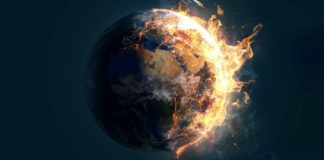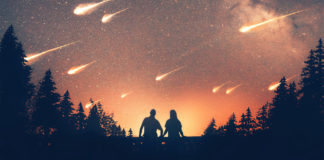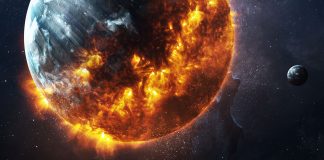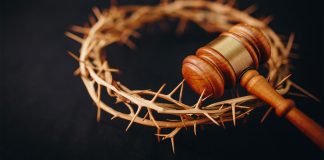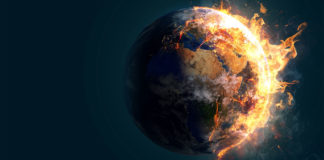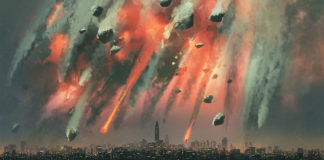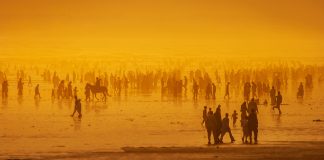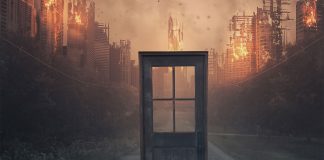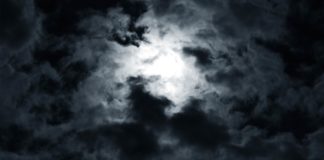COVID-19: Which end is The End?
As the crisis caused by the new coronavirus deepened and spread, it was to be expected that the phenomenon would be framed in apocalyptic terms. It is something that tends to occur in such contexts.
Chrislam: The syncretism between faith and fake news
A significant number of Christians of various denominations, both traditional and Protestant, are concerned by the online materials announcing the establishment of a one-world religion: Chrislam. The news is that this is just the first step, which will be followed by a one-world currency, and a one-world government that is up to no good.
The end of the world: on the list of convictions that frighten us
A good survey of people's thoughts on the end times would not seek to find out whether people believe the world will end or not. Rather, it would seek to know what their thoughts are on when and how the end will come. Regardless of the source of their belief—religious or secular—most people have come to see the idea of the end of...
Camping at the end of the world
I still remember May 21, 2011, like it was yesterday. Thousands of kilometres away in Boulder, USA, an evangelist named Harold Camping, president of the popular ministry Family Radio, was in the news spotlight. He had predicted that on May 21, more than 200 million Christians all around the world would be raptured away to heaven and that five months later, the world would end.
The Shakahola massacre | The apocalypse that brings psychosis instead of hope
More than 300 bodies have been found in a Kenyan forest and at least 600 people are missing. The victims, including children, belonged to an apocalyptic cult that carried out a plan of mass suicide by starvation. The shock of the Shakahola massacre has reverberated beyond Kenya's borders, raising disturbing questions, including how the message of Revelation, part of the good news of...
The exclusive prayer: Who should we address when we pray?
The stakes are high when it comes to identifying the one to whom we should pray, and we can discover who by answering an apparently simple question: Can we expect prayers to be heard no matter who we address them to?
The end of the world, according to Jesus’ teaching
Much has been written about the end of the world, but, if this end coincides with Christ’s second coming, then we should enquire from Jesus Himself what he teaches about His return. We will do this by using the material of the Christian Gospels.
Vaccine against death
What would you do if someone denigrated you in public? You could deny the information, but there is no guarantee that you will be able to rehabilitate your image. If you leave things as they are, there is a risk that silence will be interpreted as guilt. If you go to court, the process might take a long time and it may not...
The final days of history
Virtually every civilization has been characterised by religious beliefs about the end of all things, not least about the timing and the conditions that precede the end, and signs of its imminence. There are many differences between these beliefs across civilisations, but many similarities too.
Pocket apocalypse: The end of the world in the press
The image of an apocalypse generated by a microscopic coronavirus has been sketched more than once by the press in the past few weeks.
The counterfeit motif in the apocalyptic scenario
There is a lot of talk today about the fact that things are not what they seem. It is not easy to distinguish between conspiratorially motivated speculation, and the real hidden things of our world—but most of the time the sources make the difference.
COVID-19: Life in the shadow of death
I am not an expert on the phenomenon of death. But like all of us, I have to live in its shadow, and watch the restlessness and greed it causes. The same gloomy reports that circle the planet also reach me. I feel especially conscious of this as COVID-19 claims its first victims in my country.
The risks of discussions about saving the world
Concern for the planet's climate and its ecology has occupied the world's attention for many decades. In the 1980s, the ozone layer depletion caused by chlorofluorocarbons and similar gases was observed, and in 1987, the Montreal Protocol was finalised.
The end of the world in literature
The end of the world has been an enduring human preoccupation and, paradoxically, has existed since the dawn of civilisation.
The forgotten sign
On May 19th, 1780, a strange phenomenon turned a sunny morning into an unexpected night. The event, known as the Dark Day, was seen as a sign of divine judgment by contemporaries and as a means of ridiculing apocalyptic expectations by sceptics.












